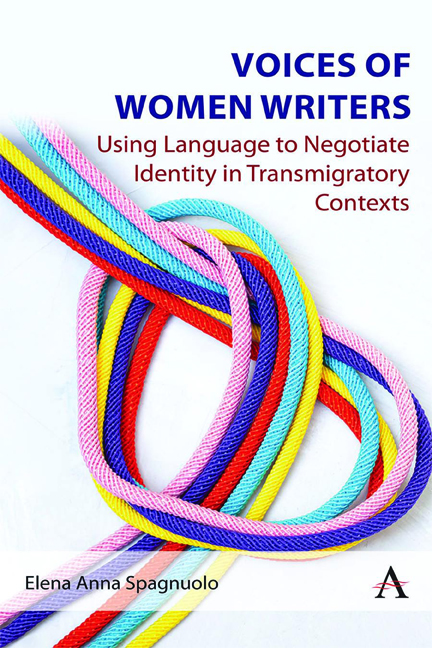Book contents
- Frontmatter
- Contents
- Introduction
- 1 Revoicing Female Migrant Identities through Creative Multilingualism
- 2 Gianna Patriarca: Self-Translating as a Strategy of Re-grounding
- 3 Dôre Michelut: Coming to Terms with the Mother Tongue
- 4 Licia Canton: Rewriting the Italian Mother (Tongue, Land)’s Legacy in Self-Translation
- 5 Francesca Duranti: ‘Trans-Writing’ the Self through Acts
- Conclusion
- References
Introduction
Published online by Cambridge University Press: 01 March 2024
- Frontmatter
- Contents
- Introduction
- 1 Revoicing Female Migrant Identities through Creative Multilingualism
- 2 Gianna Patriarca: Self-Translating as a Strategy of Re-grounding
- 3 Dôre Michelut: Coming to Terms with the Mother Tongue
- 4 Licia Canton: Rewriting the Italian Mother (Tongue, Land)’s Legacy in Self-Translation
- 5 Francesca Duranti: ‘Trans-Writing’ the Self through Acts
- Conclusion
- References
Summary
In 2022, the Haslemere Educational Museum hosted an exhibition about bird migration, aiming to expand people's knowledge of this phenomenon, and to inform and arouse concern about the decline of many summer migrants, a problem that is being increasingly reported worldwide. For instance, in January 2023, an article in the Guardian signalled that, due to the climate crisis, the number of UK's winter birds is in sharp decline.
In the meantime, European newspapers and TV news talk about the migrant crisis in Europe, highlighting its effects and consequences for society. As an Italian, I am very familiar with these discourses; our press coverage continuously reports about a supposed migrant invasion, portraying the country as invaded by refugees and asylum seekers.
Taking these two facts into account, two considerations emerge. The first one concerns the different attitudes towards birds and people's migration. Bird migration is considered natural, necessary and unavoidable; like Dingle and Drake state, we tend to see animal migration as an ‘essential component of the life history and ecological niche of the organism’ (2007, 113). On the other hand, we are reluctant to accept human migration. In order to stop and delimit it, we build walls and make citizenship laws stricter and stricter. Nonetheless, the movement of people is not an unprecedented phenomenon. The general assumption is that ‘because a phenomenon is highly visible, contested and difficult to administratively manage, nothing like this has happened before’ (Mayblin and Turner 2021, 10). This is not true. People have always moved, and their movements have shaped the world as we know it.
The second consideration is that, far from being in decline, human migration is increasing more and more. According to Global Trends (2022), over the last decade, the number of refugees has doubled. On the one hand, this increased mobility is the result of people's innate curiosity and restlessness, of free borders and movement, which leads them to leave their comfort zone and explore new shores; on the other hand, it is the consequence of war, persecution, poverty and global warming.
- Type
- Chapter
- Information
- Voices of Women WritersUsing Language to Negotiate Identity in (Trans)migratory Contexts, pp. 1 - 8Publisher: Anthem PressPrint publication year: 2023



